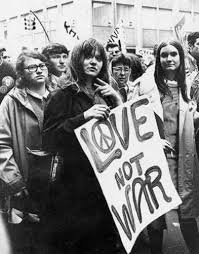counterculture
英 [ˈkaʊntəkʌltʃə(r)]
美 [ˈkaʊntərkʌltʃə(r)]
- n. 反主流文化(60和70年代美国青少年中盛行的一种思想)

记忆方法
将“counterculture”分解为两部分来记忆:“counter”和“culture”。想象“counter”是一个反义词的开头,它暗示了与主流文化相对立的概念,而“culture”代表文化。组合这两个部分,你就可以记住“counterculture”是指与主流文化相对立的文化或反文化运动。
以上内容由AI生成, 仅供参考和借鉴
中文词源
counterculture 反主流文化的
counter-, 相反。culture,文化。
英语词源
- counterculture (n.)
- also counter-culture, counter culture, 1968, from counter- + culture (q.v.). Popularized by, and perhaps coined in, the book "The Making of a Counter Culture" by Theodore Roszak. As an adjective by 1972.
权威例句
- 1. Not everyone joined the counterculture, not everyone demonstrated, dropped out, took drugs, or dodged the draft.
- 不是所有人都加入反主流文化群体,不是所有人都示威游行,退学,吸毒,或逃避服兵役。
- 2. An eccentric or nonconformist person, especially a member of a counterculture.
- 离经叛道之人、反常或不符合常规之人, 尤指反主流文化的成员.
- 3. But in the 1960 s a new force developed called the counterculture.
- 但是在1960年代一个新的力量发展呼叫反主流文化.
- 4. A young person, especially a member of a rebellious counterculture group.
- '叛逆'.''的年轻人尤指加入反叛性的反文化组织的年轻人.
- 5. A thriving counterculture strikes back at an uncaring society, rebelling with words, music and often violence.
- 茁壮成长的反主流文化回击原本不理睬他们的社会, 这样的回击包括言辞 、 音乐往往还有暴力.